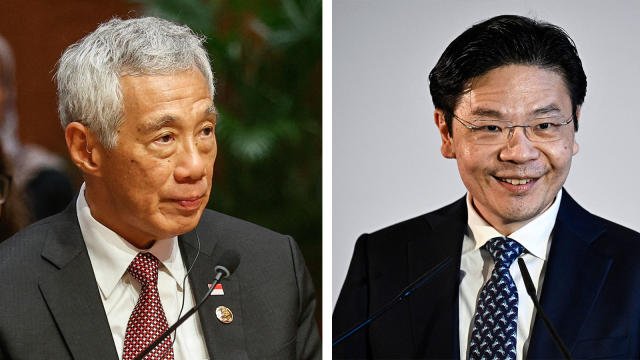For the majority of Singapore’s independent history, the leadership has been synonymous with the Lee family. However, a significant transition is now underway.
Lee Hsien Loong, the incumbent prime minister, has announced his forthcoming step down after two decades in office. This move finalizes a well-anticipated succession plan that had been in motion even before the onset of the Covid-19 pandemic.

Stepping into Lee’s shoes is Lawrence Wong, a distinguished 51-year-old, and fellow alumnus of Harvard University. Wong’s leadership during the pandemic has garnered attention, positioning him as a capable successor.
Wong’s ascension marks the conclusion of a remarkable fifty-year span of governance under the Lee family. It all began in 1959 when Lee Kuan Yew, the patriarch, assumed office, spearheading Singapore’s remarkable transformation into a global financial powerhouse from a colonial trading post.
While the Lees are credited with Singapore’s economic prosperity, the focus now shifts to the longevity of the ruling People’s Action Party amidst concerns about the city-state’s high living costs and escalating geopolitical tensions.
Analysts predict continuity under Wong’s leadership, given Singapore’s reputation for political stability. His immediate challenge lies in navigating whether to call for early elections, which must occur by late next year.

The world watches keenly as Wong prepares to take the reins, with expectations that his policies will resonate with the populace. Failure to address public sentiments could potentially erode the ruling party’s support, particularly in the face of mounting opposition.
During his tenure, Lee steered Singapore through turbulent times, from the global financial crisis to the Covid-19 pandemic. His adept handling of these crises, coupled with his diplomatic finesse in navigating international relations, earned him global acclaim.
Under Lee’s stewardship, Singapore’s economic landscape flourished, with asset management soaring and the population witnessing significant growth. However, concerns lingered, particularly regarding the cost of living and income inequality, stemming from pro-business policies.
The transition of power comes amidst challenges to the ruling party’s integrity, including recent corruption scandals. Wong, heralded as the heir apparent for the past two years, adopts a more inclusive approach, aiming to garner broad-based support across Singapore’s diverse society.
Lee’s continued involvement in politics, albeit in a senior ministerial role, underscores his ongoing commitment to Singapore’s progress. Unlike his predecessors, Lee’s children show little inclination towards political office, reflecting a departure from familial expectations.
As Singapore embarks on this new chapter, there’s a collective hope that the transition will usher in an era of fresh perspectives and continued prosperity. With Wong at the helm, Singaporeans anticipate a future characterized by resilience, inclusivity, and sustained growth.


